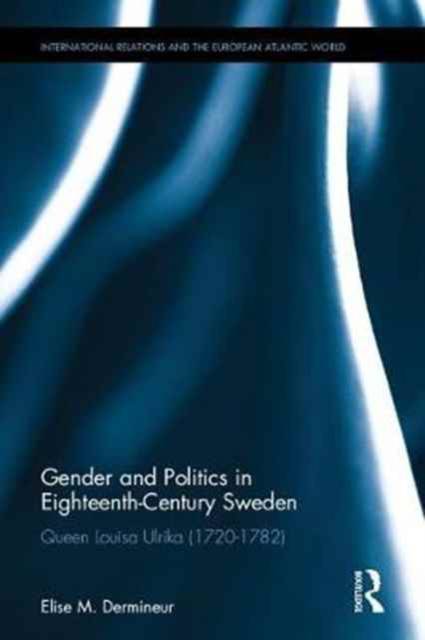
Bedankt voor het vertrouwen het afgelopen jaar! Om jou te bedanken bieden we GRATIS verzending (in België) aan op alles gedurende de hele maand januari.
- Afhalen na 1 uur in een winkel met voorraad
- In januari gratis thuislevering in België
- Ruim aanbod met 7 miljoen producten
Bedankt voor het vertrouwen het afgelopen jaar! Om jou te bedanken bieden we GRATIS verzending (in België) aan op alles gedurende de hele maand januari.
- Afhalen na 1 uur in een winkel met voorraad
- In januari gratis thuislevering in België
- Ruim aanbod met 7 miljoen producten
Zoeken
€ 290,45
+ 580 punten
Uitvoering
Omschrijving
This book retraces the life and experience of Princess Louisa Ulrika of Prussia (1720-1782), who became queen of Sweden, with a particular emphasis on her political role and activities. As crown princess (1744-1751), queen (1751-1771) and then queen dowager (1771-1782) of Sweden, Louisa Ulrika took an active role in political matters. From the moment she arrived in Sweden, and throughout her life, Louisa Ulrika worked tirelessly towards increasing the power of the monarchy. Described variously as fierce, proud, haughty, intelligent, self-conscious of her due royal prerogatives, filled with political ambitions, and accused by many of her contemporaries of wanting to restore absolutism, she never diverted from her objective to make the Swedish monarchy stronger, despite obstacles and adversities. As such, she embodied the perfect example of a female consort who was in turn a political agent, instrument and catalyst. More than just a biography, this book places Louisa Ulrika within the wider European context, thus shedding light on gender and politics in the early modern period.
Specificaties
Betrokkenen
- Auteur(s):
- Uitgeverij:
Inhoud
- Aantal bladzijden:
- 266
- Taal:
- Engels
- Reeks:
Eigenschappen
- Productcode (EAN):
- 9781472476661
- Verschijningsdatum:
- 1/11/2017
- Uitvoering:
- Hardcover
- Formaat:
- Genaaid
- Afmetingen:
- 152 mm x 229 mm
- Gewicht:
- 526 g

Alleen bij Standaard Boekhandel
+ 580 punten op je klantenkaart van Standaard Boekhandel
Beoordelingen
We publiceren alleen reviews die voldoen aan de voorwaarden voor reviews. Bekijk onze voorwaarden voor reviews.









